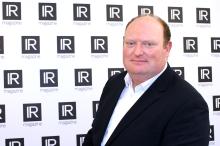With different standards around the world and the SEC, ISSB and EU proposing different frameworks, inconsistency around ESG terminology and methodology is a ‘major concern’ among global financial institutions working across jurisdictions, IROs heard during the NIRI 2022 conference.

State Street
Ronald O’Hanley, the chair and CEO of US financial services and bank holding company State Street, also warned that civil liability and litigation are unique factors to be aware of in the US when it comes to regulation.
O’Hanley offered a buy-side perspective on stage opposite Sarah Keohane Williamson, CEO of FCLTGlobal, at the annual conference in Boston.
O’Hanley spoke of the need for good governance in preparing for the SEC’s climate change disclosure rule proposal, which investors could learn from. ‘Over time, investors will start to work out how to use the data and give feedback to issuers,’ he said. ‘This is something we have to live with so focus on what matters, getting it out and trusting the data.’
Williamson said some high-emitters are worried about being cut off from capital markets, asking O’Hanley what role these companies can play in the energy transition.

FCLTGlobal
He said it is a big issue because ‘there’s not a straight line from brown to green’. High-emitters will need investment to transition to green practices. A gas plant may have to be the link between coal-powered energy and renewable sources towards achieving net-zero emissions, for example. ‘Divestment has probably been more destructive without a transparent pathway to net-zero so it’s a complicated problem to figure out, not only industry by industry but almost asset by asset,’ he said.
Williamson noted the easiest way to divest assets is to sell to someone who ‘doesn’t care’ about ESG best practices.
ESG ‘through the lens of value’
FCLTGlobal, a US non-profit organization that develops research and tools that encourage long-term investing, is a big proponent of having an ESG strategy, not just per quarter, but over a long timeframe, Williamson said.
O’Hanley said the definition of value creation was narrow and short-term compared to ESG-related issues, which may not make a difference in value creation per quarter, though he noted they do long-term. ‘We have a set of values, both personal and corporate, but for us it’s very much about integrating corporate and ESG strategies,’ O’Hanley added. ‘Sea changes to workforce policies are long-term issues that will affect long-term value creation. It’s that trade off which is forcing a healthy consideration of ESG into long-term strategy.’
 The duo then turned their attention to internal ESG ratings versus third-party ratings. O’Hanley said he thinks the world will eventually arrive at high-quality third-party ratings, but that these will evolve over time as measurement improves. He urged the SEC to start ‘modestly’ with its disclosure proposals and be ‘reflective of the reality of where we are’.
The duo then turned their attention to internal ESG ratings versus third-party ratings. O’Hanley said he thinks the world will eventually arrive at high-quality third-party ratings, but that these will evolve over time as measurement improves. He urged the SEC to start ‘modestly’ with its disclosure proposals and be ‘reflective of the reality of where we are’.
NIRI 2022 delegates heard from the pair that geopolitics is the new ‘G’ in ESG. There will be increasing focus on ‘E’ and ‘S’ from investors’ collective ‘soul-searching’ experiences throughout the Covid-19 pandemic about frontline workers and the risks they took, as well as political divisions. O'Hanley said: ‘as long-term stewards of capital, we have to be aware of this [but] we have to put it through the lens of value.’










